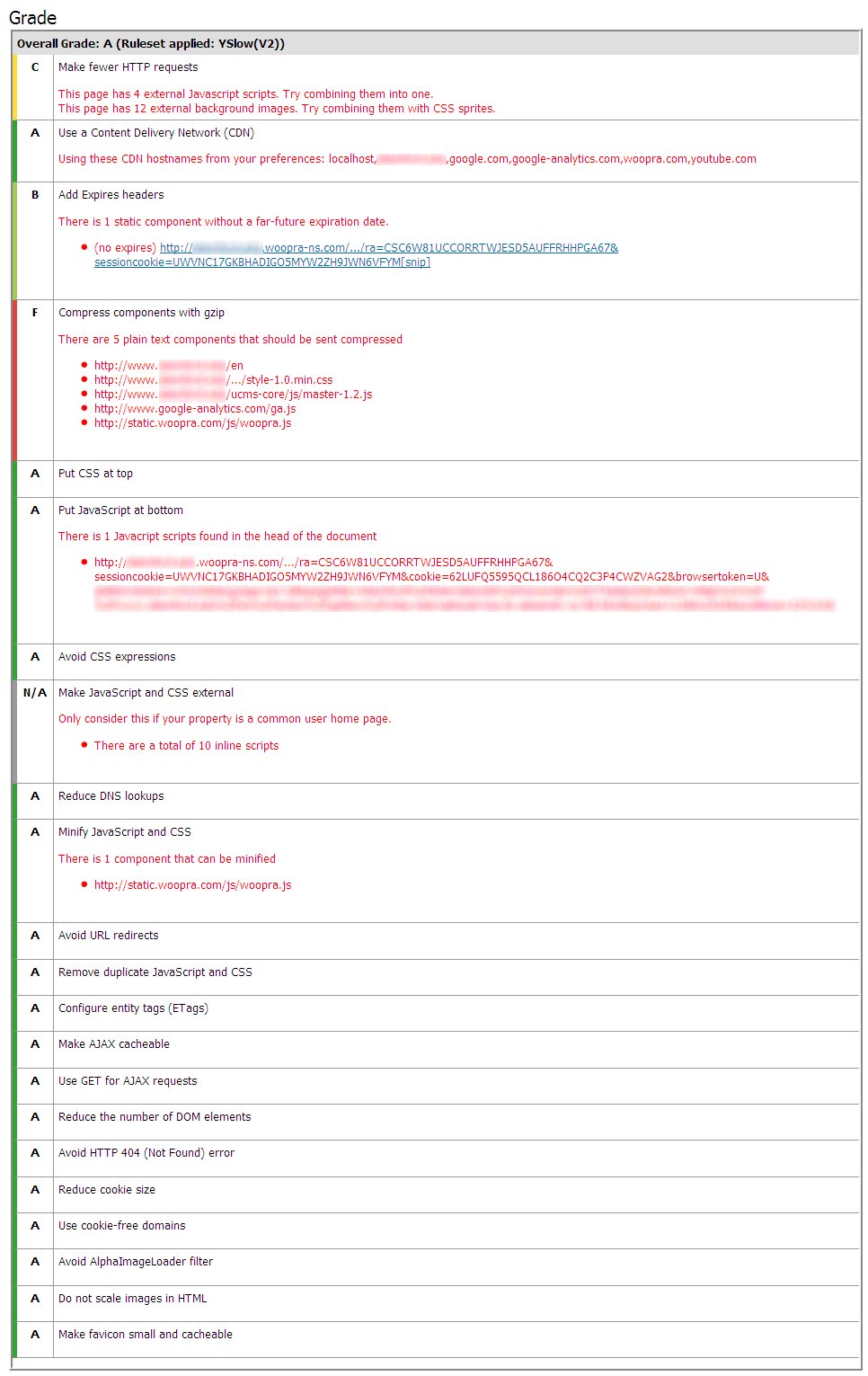I'm using mod_deflate on Apache 2.2 and the compression level is set to 9. I've fine tuned every possible aspects of the site based on the recommendations of YSlow (v2) and have managed to get an overall A grade (Total Score: 91) as well as on all categories except for:
- Make fewer HTTP requests (Grade C - I'm still working on further unification of images)
- Compress components with gzip (Grade F)
YSlow still reports back with a F and tells me to use gzip on my CSS and JS files. Here's a screenshot of the YSlow report (the domain has been blurred out for the sake of privacy):

However, sites like GIDNetwork GZIP Test reports perfect compression!!
mod_deflate section of my .htaccess
# Below uses mod_deflate to compress text files. Never compress binary files.
<IfModule mod_deflate.c>
SetOutputFilter DEFLATE
# compress content with type html, text, js, and css
AddOutputFilterByType DEFLATE text/html text/plain text/css text/javascript text/xml image/svg+xml application/javascript application/x-javascript application/atom_xml application/rss+xml application/xml application/xhtml+xml application/x-httpd-php application/x-httpd-fastphp
# Properly handle old browsers that do not support compression
BrowserMatch ^Mozilla/4 gzip-only-text/html
BrowserMatch ^Mozilla/4\.0[678] no-gzip
BrowserMatch \bMSIE !no-gzip !gzip-only-text/html
# Explicitly exclude binary files from compression just in case
SetEnvIfNoCase Request_URI \.(?:gif|jpe?g|png)$ no-gzip dont-vary
SetEnvIfNoCase Request_URI \.(?:exe|t?gz|zip|bz2|sit|rar)$ no-gzip dont-vary
SetEnvIfNoCase Request_URI \.pdf$ no-gzip dont-vary
SetEnvIfNoCase Request_URI \.avi$ no-gzip dont-vary
SetEnvIfNoCase Request_URI \.mov$ no-gzip dont-vary
SetEnvIfNoCase Request_URI \.mp3$ no-gzip dont-vary
SetEnvIfNoCase Request_URI \.mp4$ no-gzip dont-vary
SetEnvIfNoCase Request_URI \.rm$ no-gzip dont-vary
# properly handle requests coming from behind proxies
Header append Vary User-Agent env=!dont-vary
</IfModule>
Can anyone please point out where I'm going wrong?
Thanks, m^e
